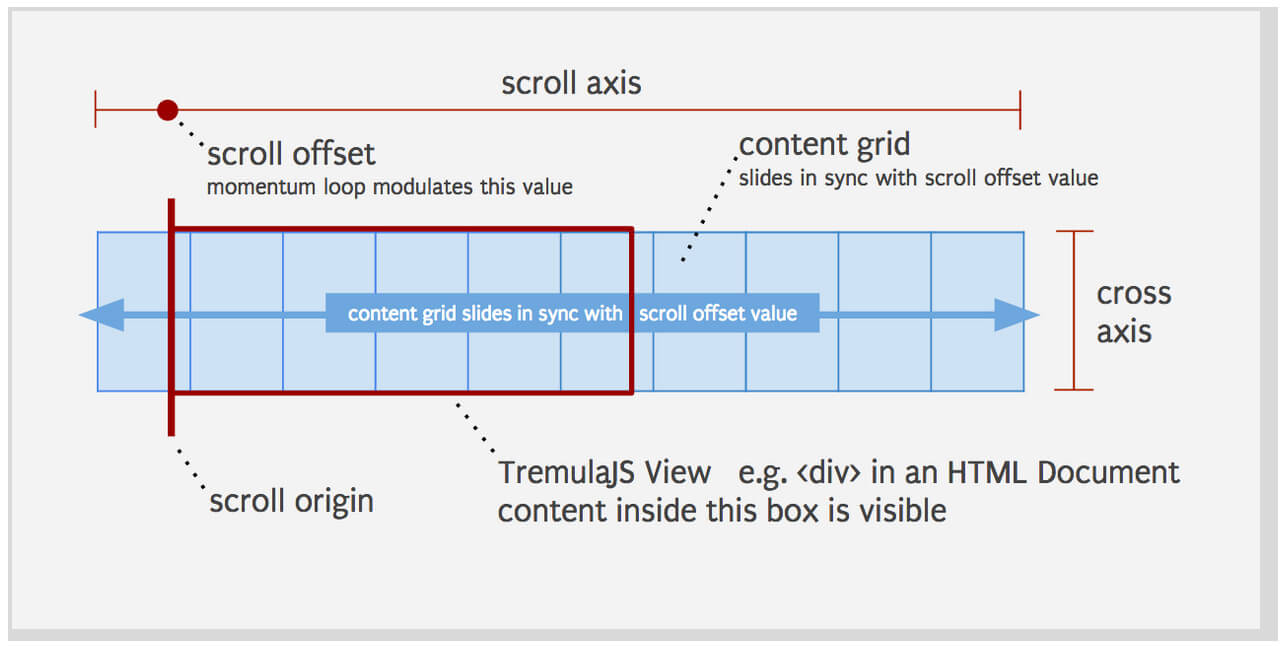Convert Key => Value Arrays Into Standard Variables In PHP
I don't mind using arrays -- in fact, I love them. They're easy to use and hold collections of information well.
I don't always want to use arrays though. Why use:
echo $user['first_name'];
when you could simply use:
echo $first_name;
So how can we get rid of the array part of the variables?
The Code
foreach($user as $key=>$value) { $$key = $value; }
//or....
foreach($user as $key=>$value) { ${$key} = $value; }
A few variables you must be careful with are:
Why? Because $_GET, $_POST, and $_REQUEST variables can manipulated by the user and that would present a huge security concern.
![Responsive and Infinitely Scalable JS Animations]()
Back in late 2012 it was not easy to find open source projects using requestAnimationFrame() - this is the hook that allows Javascript code to synchronize with a web browser's native paint loop. Animations using this method can run at 60 fps and deliver fantastic...
![An Interview with Eric Meyer]()
Your early CSS books were instrumental in pushing my love for front end technologies. What was it about CSS that you fell in love with and drove you to write about it?
At first blush, it was the simplicity of it as compared to the table-and-spacer...
![CSS Triangles]()
I was recently redesigning my website and wanted to create tooltips. Making that was easy but I also wanted my tooltips to feature the a triangular pointer. I'm a disaster when it comes to images and the prospect of needing to make an image for...
![NSFW Blocker Using MooTools and CSS]()
One of my guilty pleasures is scoping out the latest celebrity gossip from PerezHilton.com, DListed.com, and JoBlo.com. Unfortunately, these sites occasionally post NSFW pictures which makes checking these sites on lunch a huge gamble -- a trip to HR's office could be just a click away.
Since...





Interesting effect, but it has the same effect of php’s extract function! In your example, you can do
extract($user);and so call$first_name; ;)http://www.php.net/extract
Good point Hugo. My post wasn’t detailed enough, or perhaps was over-simplified.
With the loop, you can do special operations to the values. For example:
foreach($_POST as $key=>$value) { $key = stripslashes($value); }…removes slashes.
Thanks for this little simple snip of code. I have spent hours trying to get a query to read a
WHERE id = "'.$_POST(var).'"Everything I tried would echo an array and then the value which the query just would say da~ha what??? After using this line above and theWHERE id = "'.$key.'"it work perfect as designed.Thank You for taking the time to make your post.I have used this alot for both GET’s and POST’s, sure, they can create their own variables, who cares? If I use a variable, I always declare it after pulling from get or post, the variables that I use from post and get are also validated for correct values.
Also, something I have found handy for dealing with case sensitivity for get variables, (since sometimes if someone posts it to say, ICQ for someone else to visit, ICQ will lowercase the whole string) is
foreach($_GET as $k = $v) { $k = strtolower($k); \$$k = $v }then you can safely test to see if the get was set
if(isset($variablenametotestfor)) {//begin execution}Thank you for the RegEx, Peter — that could prove very useful!
Sorry, there was an error in my regex syntax there, I learned regex with javascript, and just learning PHP regEx… I got the two confused when I wrote that
The correct syntax for the above would be
$acceptedGETS = "/\bvarname1\b|\bvarname2\b|\bvarname3\b|\betc\b/"; foreach($_GET as $key => $value) { $key = strtolower($key); if (preg_match($acceptedGETS,$key)) $$key = $value; }the
\bis required on both sides of each variable name to force exact words, without them qvarname1x34r would match.Hey is not on google so I was wondering what the ${ } does? I have never seen it before.
Hi David,
I think the brackets are just a way of delimiting the variable’s name from the rest of the string.
Say you had variable $table_prefix,
echo “table name: $table_prefix_users”; // would return “table name: “;
echo “table name: ${table_prefix}_users”; // would return “table name: wp_users”;
I am not sure about this :) I am most likely wrong.
Cheers!
Droope
No, Droope is correct. Mostly.
The ${ } does designate a string.
But the purpose of this article is showing how to easily assign array variables to their key name. I know that sounds confusing, but its it.
Example:
$people[‘me’] = ‘robert’;
$people[‘friend’] = ‘sam’;
$people[‘girl’] = ‘bailey’;
foreach($people as $key => $val) {
// ${“me”} = ‘robert’
${$key} = $val; //or $$key = $val;
}
So that
echo $me; //echo “robert”;
(great blog, btw)
As Hugo Magalhães said, I think this woud be a “better” solution…
This way, nobody can modify or change your variables!
extract($REQUEST, EXTR_PREFIX_ALL, "my_prefix");Thank you all very much for this, was exactly what I was looking for today. using Peter’s approach just whipped up a quick match string, just add your allowed variables to the array.
$acceptedIncomingVars = array('id', 'name', 'code', 'cost', 'desc', 'mixtypeid', 'mixdetailid'); $acceptedVars = "/"; for($i = 0; $i $value) { $key = strtolower($key); if (preg_match($acceptedVars,$key)) { $$key = $value; } } echo $code;Would you be able to help me get this problem sorted.
I have this
which returns this:
1,2,3,4,5
I need to be able to go through them and not only the value of the items to the variable name but also as the value.
So ideally I would like this:
and for instance if
returned :
1,3,6,8
I would like
Thank you.
Nice, trick and thank to first comment about extract function :)
Dear,
PHP 5 is already resolved the issue by creating a function called “extract()” which do the same thing as per by the above foreach loop.
use function extract() to get rid of all this stuff.
This is super ugly/bad! Now people use IDE`s, and this makes life damn hard, because you can’t see what variables are defined etc.
The only place where this could be used, is when you render a view, which uses global variables and output buffering.
Otherwise, making all evil data that user submits as variables sounds veeeery uncool.